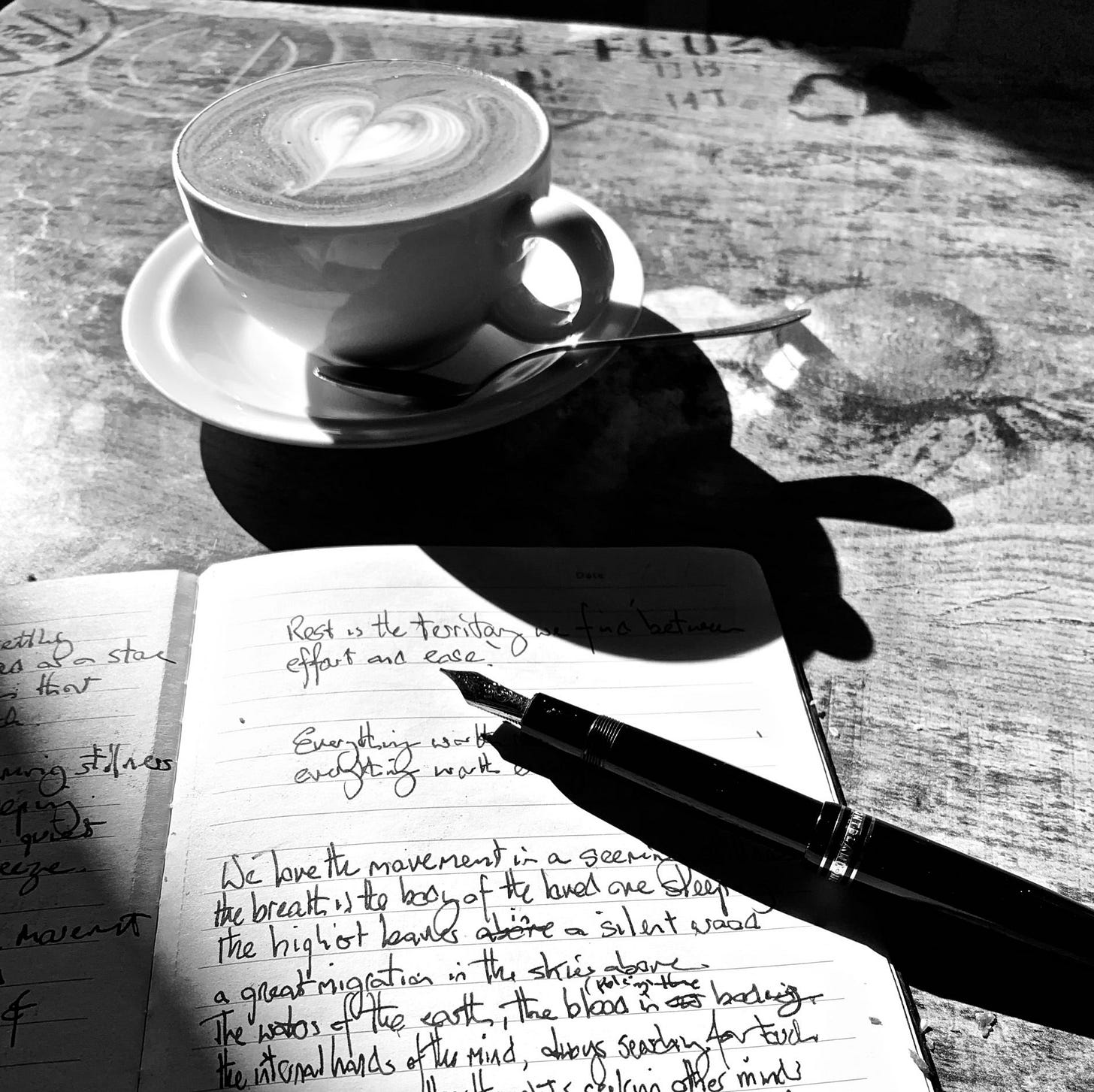Routine
is disguised ritual
ROUTINE
is the way we worship fully at the altar of the timeless. Routine is the way we step down from what is absolutely extraordinary into the miracle of an ordinary day and an ordinary hour. Routine is disguised ritual.
Routine is not the routine word it has come, so routinely, to sound. Routine is how we disguise our rituals of att…




